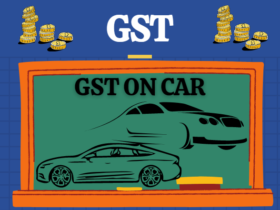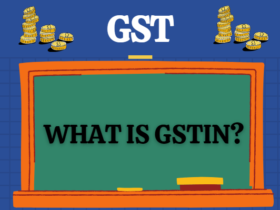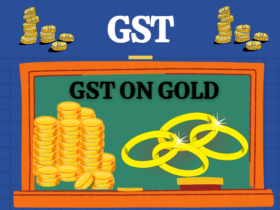What is Income Tax meaning? Income tax is a type of tax that governments impose on income generated by businesses and individuals within their jurisdiction.
Income tax is a source of revenue for governments. They used to fund public services, pay government obligations, and provide goods for citizens.
The income tax return is collected by the income tax department. You can visit www.incometaxindia.gov.in to check your income Tax detail or also you can pay income tax online.
However, To run a nation judiciously, the government needs to collect taxes from eligible citizens; Paying taxes to local government is an integral part of everyone’s life, no matter where we live in the world.
Now, taxes can collect in any form such as state tax, central government tax, direct tax, indirect tax, and more.
However, For our ease, let us divide the types of taxation in India into two categories, ie. Direct tax and indirect tax. This separation based on how the tax being paid to the government.
Therefore, A tax is a compulsory fee or financial charge levied by any government on an individual or organization to collect revenue for public facilities that provide the best facilities and basic facilities.
In addition, The collected funds then used to fund various public expenditure programs. If someone fails to pay taxes or refuses to contribute to it, it will invite serious effect under pre-determined legislation.
READ ALSO : What is a Secured Credit Card
How Income Tax Works
Most countries use a progressive income tax system in which high-income people pay higher tax rates than their low-income counterparts.
The Americans imposed the country’s first income tax in 1862 to help with the civil war. After the war, the tax repealed. It restored in the early 20th century.
However, In the US, the Internal Revenue Service (IRS) collects taxes and enforces tax laws. The IRS employs a complex set of rules and regulations regarding reportable and taxable income, deductions, credits, et al.
In addition, The agency collects taxes on all types of income, such as wages, salaries, commissions, investments, and business income.
Therefore, The personal income tax that the government collects can help fund government programs and services such as social security, national security, schools, and roads.
READ ALSO : How to Get a Credit Card at 18 Years Old
Different Types of Income Tax in India
There are two main categories of taxes, which are further subdivided into other categories. The two major categories are direct tax and indirect tax. There are also small cesses that fall into various sub-categories. Within the Income Tax Act, there are various functions governing these taxes.
1. Direct Tax
Direct tax is a tax that the individual or legal entity has to pay directly to the government. The Direct taxes ignored by the Central Board of Direct Taxes (CBDT). The Direct taxes cannot transfer to any other person or legal entity.
Therefore, The following are the sub-categories of direct taxes:
1. Income tax:
It a tax levied on annual income or profit that paid directly to the government. Everyone who earns any kind of income is liable to pay income tax.
There are different income tax slabs for different income amounts.
- For persons below 60 years of age, the tax exemption limit is Rs. 25 lakhs per year.
- And For individuals between the ages of 60 and 80, the tax exemption limit is Rs.3 lakh.
- For individuals above the age of 80, the tax exemption limit is Rs.5 lakh.
Apart from individuals, legal entities are also liable to pay taxes. These include all artificial judicial persons, Hindu Undivided Family (HUF), Body of Individuals (BOI), Association of Persons (AOP), companies, local firms, and local authorities.
2. Capital gains:
Capital gains tax is levied on the sale of property or money acquired through investment. This can be from short-term or long-term capital gains from an investment.
However, This includes all exchanges conducted in a manner that is weighed against its value.
3. Securities transaction Tax:
STT is levied on the stock market and securities trading. Securities are taxed at the share price as well as ISE (Indian Stock Exchange).
4. Prerequisite Tax:
Therefore, These are taxes that are levied on various benefits and perks that are provided by a company to its employees. The purpose of benefits and allowances, whether official or personal, is to be defined.
5. Corporate tax:
In addition, Income tax paid by a company defined as corporate tax. It is based on various income tax slabs, which come under revenue. The sub-categories of corporate taxes are as follows:
- Dividend distribution tax: This tax is levied on the dividends that companies pay to investors. This applies to the net or gross income that an investor receives from an investment.
- Fringe benefits tax: It a tax levied on fringe benefits received by the company to the employee. This includes expenses related to housing, transportation, holiday travel allowance, entertainment, employee’s retirement fund contribution, employee welfare, employee stock ownership plan (ESOP), etc.
- Minimum Alternative Tax (MAT): Companies pay to the IT department through MAT which governed by Section 115JA of the IT Act. The companies exempted from MAT are those in the power and infrastructure sectors.
2. Indirect tax
The tax levied on services and products called an indirect tax. Indirect taxes collected by the seller of the service or product.
However, Tax added to the price of products and services. It increases the price of the product or service. Currently, only an indirect tax is levied by the government. This GST or Goods and Service Tax.
GST: It is the consumption tax levied on the supply of services and goods in India. Every stage of the production process of any goods or value-added services is subject to GST implementation. It to return to the parties involved in the production process (and not the final consumer).
Therefore, The GST resulted in the elimination of other types of taxes and duties such as value-added tax (VAT), octroi, customs, central value-added tax (CENVAT) as well as customs and excise duties. The products or services which not taxed under GST are electricity, alcoholic beverages, and petroleum products. These taxed by individual state governments as per previous state rules.
3. Other taxes
- Property tax: It also called real estate tax or municipal tax. Residential and commercial property owners are subject to property tax. It used for the maintenance of some basic civil services. Property tax is levied by the municipal bodies located in each city.
- Professional tax: This employment tax is levied on those who practice a profession or earn salaried income like lawyers, chartered accountants, doctors, etc. This tax is different in different states. Not all states levy commercial taxes.
- Entertainment tax: It is a tax that is levied on television series, films, exhibitions, etc. The tax is levied on gross collections from earnings. Entertainment tax also called entertainment tax.
- Registration fees, stamp duty, transfer tax: These collected in addition to supplementing property tax or while purchasing a property.
- Education cess: It is levied to fund educational programs initiated and created by the Government of India.
- Entry tax: It is a tax that is levied on products or goods that enter a state, especially through e-commerce establishments, and is applicable in states like Delhi, Assam, Gujarat, Madhya Pradesh, etc.
- Road tax and toll tax: This tax used for the maintenance of roads and toll infrastructure.
Benefits of Income Tax
The purpose of taxes is to provide funds for the government to spend without inflation. Taxes used by the government for various purposes, some of which are:
- Funding of public infrastructure
- Development and welfare projects
- Defense expenditure
- Scientific research
- Public insurance
- Salaries of state and government employees
- Operation of the government
- Public transportation
- Unemployment benefits
- Pension schemes
- Law enforcement
- Public health
- For Public education
- Public utilities such as water, energy, and waste management systems








